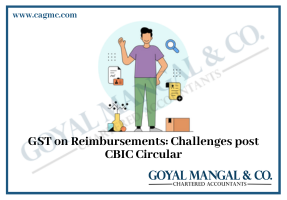
Consumers are increasingly choosing healthier and more sustainable food options, which have resulted in a considerable increase in the demand for organic food in recent years. The Food Safety and Standards Authority of India (FSSAI) has established detailed regulations to control the manufacturing, certification, and labelling of organic food items. The steps needed to guarantee the quality, authenticity, and safety of organic food is highlighted in this article, which goes into the specific FSSAI rules & regulations applicable in the state of Rajasthan. By understanding FSSAI guidelines in Rajasthan, both consumers and producers can make informed decisions, promoting a transparent and thriving organic food ecosystem in Rajasthan.
| Table of Contents |
What is FSSAI?
The Food Safety and Standards Authority of India is known by the initials FSSAI. It is an independent regulatory organization created by the Indian government’s Ministry of Health and Family Welfare. In India, the FSSAI oversees guaranteeing the quality and safety of food items. Its main responsibility is to safeguard and advance public health by controlling and monitoring the production, processing, distribution, sale, and import of food products.
What is Organic food?
Organic food is produced under standards that promote ecological balance, biodiversity, and sustainability. Organic farming uses natural resources and bans pesticides, herbicides, and GMOs. Organic farming uses organic fertilizers, natural pest management, and sustainable practices.
Food products must be certified organic by regulatory bodies or agencies. These criteria vary by country, but they generally emphasize on factors such as soil health, water conservation, animal welfare, and the removal of synthetic additives and processing aids during production, processing, and packing. Organic food is preferred for its health benefits and environmental friendliness. Organic food may have more nutrients than traditionally farmed food and less pesticide residue and synthetic chemicals.
Why should you start an organic food business in Rajasthan?
Starting an organic food business in Rajasthan offers several compelling reasons and opportunities. Here are some key points to consider:
- Demand: More Rajasthani are choosing organic food because it’s healthier and more sustainable. An organic food firm can capitalize on health-conscious consumers’ increased interest in organic products.
- Agricultural Potential: Rajasthan has huge agricultural land and varied climates. Organic farming is possible in the state, with good conditions for growing fruits, vegetables, and herbs. These resources allow companies to grow and source organic ingredients locally, maintaining freshness and saving transportation expenses.
- Sustainability: Organic farming preserves natural resources. Starting an organic food company in Rajasthan conserves soil fertility, water resources, and biodiversity. This coincides with the worldwide environmental stewardship movement and can boost your business’s credibility.
- Health Consciousness: Healthier lives and careful consumption have increased in Rajasthan. Synthetic chemicals and additives in conventional food production are becoming better known to pose health hazards. Starting an organic product company lets you serve this health-conscious clientele with safer, more nutritious food.
- Government Support: Rajasthan’s government promotes organic farming and provides subsidies. Organic farmers and companies receive training, funding, and certification. Government subsidies can lower beginning costs and improve business conditions.
- Market Differentiation: Establishing an organic food business sets you apart from conventional food producers. With proper certification and adherence to organic standards, you can differentiate your products as premium, high-quality, and environmentally friendly. This uniqueness can attract a loyal customer base and help your business stand out in the competitive food industry.
To start an organic food business in Rajasthan, market research, a business plan, and organic certification compliance are essential.
Requisites for starting organic food business
To start an organic food business in Rajasthan, you need to fulfil several requisites. Here are some key requirements to consider:
- Business Registration: Register as a proprietorship, partnership, or private limited corporation. Get the Food Safety and Standards Authority of India (FSSAI) Food Business Operator (FBO) license.
- Certified Organic: Accredited certification bodies should certify your natural food business. NPOP certifies organic products in India. Comply with organic standards and go through the certification procedure, which includes inspections, documentation, and guidelines.
- Organic Ingredients: Establish a traceable organic ingredient supply chain. To guarantee ingredient quality, use certified organic farmers, suppliers, and distributors. Local sourcing and collaborations with organic farmers can cut shipping costs and boost local agriculture.
- Facilities and Infrastructure: Establish organic food processing, storage, and packaging facilities. Make that your food processing and packaging equipment, hygiene, and storage meet standards. Maintain and separate organic and non-organic products.
- Labelling and Packaging: Label and package your organic foods. Follow FSSAI organic labelling criteria. Labels must have the organic certification emblem, ingredients, nutritional information, and other required information.
- Quality Control and Traceability: For organic food safety and uniformity, use strict quality control procedures. Maintain quality by testing and monitoring ingredients and final products regularly. Track organic components along the supply chain via traceability systems.
- Distribution and marketing: Create a comprehensive organic food marketing strategy. Use digital marketing, social media, and online markets to reach your audience. Distribute through retailers, restaurants, and organic stores or direct-to-consumer methods including e-commerce or farm-to-doorstep delivery.
- Regulation compliance: Comply with food safety and organic requirements throughout your firm. Maintain compliance through reviewing and implementing rules.
FSSAI guidelines in Rajasthan for organic food.
In accordance with the national organic standards established by the National Program for Organic Production (NPOP), the Food Safety and Standards Authority of India (FSSAI) has established regulations for organic food in Rajasthan. Here are some essential recommendations particular to organic food in Rajasthan:
- Organic Certification: Organizations must receive organic certification from a recognized certification body approved by NPOP to sell organic food products in Rajasthan. The certification confirms the authenticity and calibre of organic products and guarantees conformity with organic standards.
- Organic Farming Practices: Rajasthan organic food producers cannot use synthetic fertilizers, herbicides, GMOs, or growth hormones. Organic manure, bio-fertilizers, composting, crop rotation, and other sustainable farming approaches are encouraged.
- Soil and Water Management: Conservation, erosion control, and organic soil enrichment are recommended to preserve soil health and fertility. Water management methods that conserve water are also promoted.
- Selection of Seeds: Organic farming in Rajasthan is encouraged and the use of organic seeds and planting materials is recommended. Farmers are encouraged to utilize traditional types modified for local requirements or certified organic seeds.
- Integrated Pest Management (IPM): To control pests, illnesses, and weeds, organic farmers in Rajasthan are urged to use IPM techniques. Crop rotation, biological management techniques, the use of botanical extracts, and physical barriers are all examples of this.
- Livestock Management: Guidelines for livestock rearing include organic feed, healthcare, housing, and animal welfare. Livestock management cannot utilize growth boosters, antibiotics, or synthetic hormones.
- Processing and Packaging: Rajasthan’s organic food processors must be hygienic and separate organic and non-organic products. Organic food packaging must display the organic certification mark and other information.
- Labelling and marketing: Rajasthani organic food must be labelled correctly. Labels should feature the organic certification emblem, certification organization, and organic ingredient percentage. Advertisements must be truthful.
It is crucial for businesses involved in the production, processing, and marketing of organic food in Rajasthan to closely follow these FSSAI guidelines. Compliance with these guidelines helps maintain the integrity and credibility of organic food products, ensuring consumers have access to authentic organic options while supporting sustainable agricultural practices.
Takeaway
In conclusion, the FSSAI guidelines for food handlers of organic food in Rajasthan serve as a vital framework to ensure the integrity and credibility of organic food products. By adhering to these guidelines, producers can maintain the quality and authenticity of their organic offerings, instilling consumer confidence and trust. Additionally, consumers benefit from clear labelling and accurate information, empowering them to make informed choices when purchasing organic food. The implementation of these guidelines in Rajasthan promotes sustainable agriculture practices, protects the environment, and supports the overall health and well-being of individuals.







